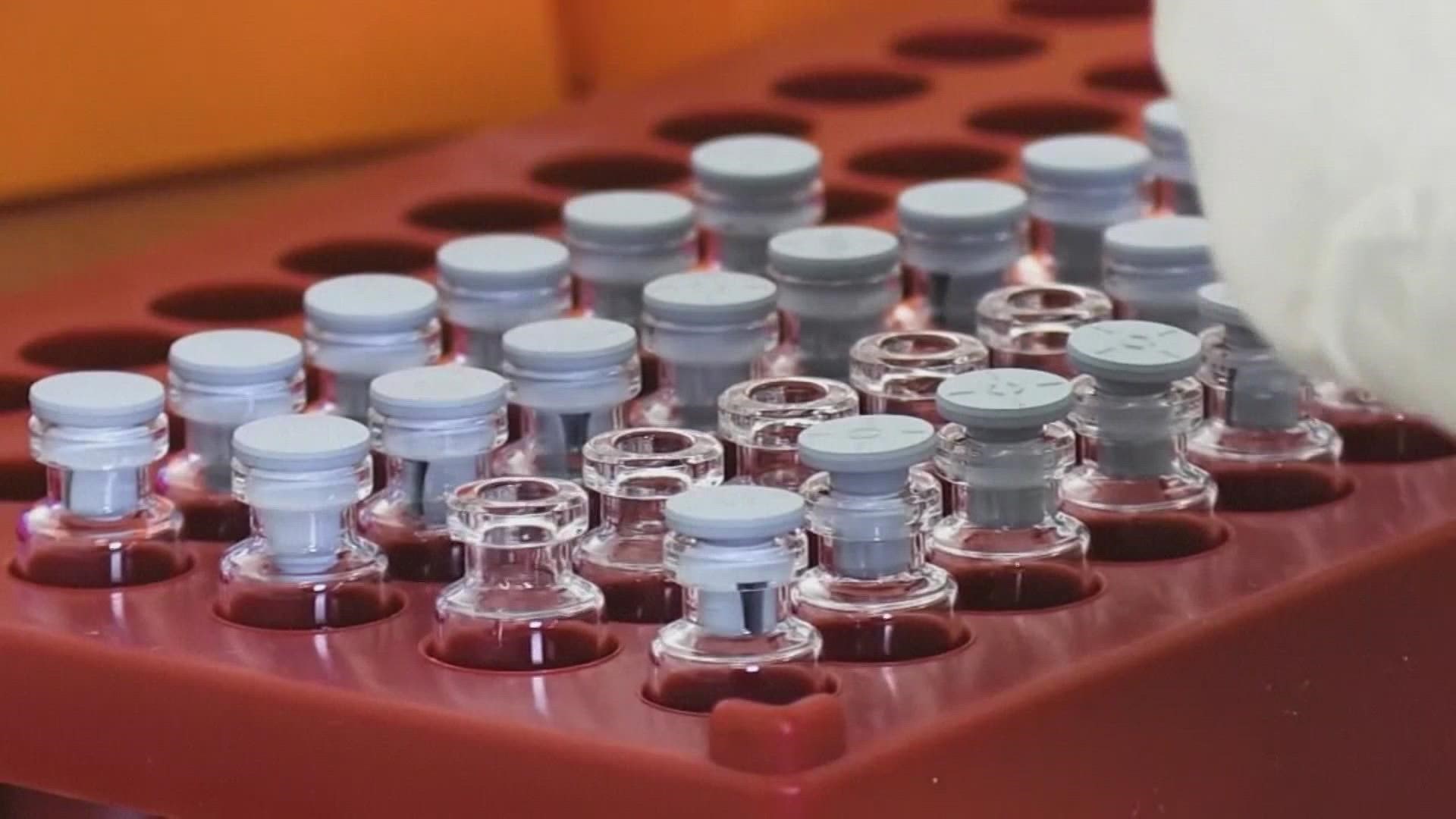FORT WORTH, Texas — Right now, researchers across the world are working to learn more about the new omicron strain of COVID-19.
Friday, the World Health Organization (WHO) designated it a variant of concern after a cluster of cases were found in several African countries. Within hours, stock markets plummeted and the Biden administration restricted travel from South Africa and seven other countries.
“I didn't want people to be in a frenzy or in a panic mode like right now at this moment,” Dr. Prathit Kulkarni, an infectious disease professor at Baylor College of Medicine said. “We're going to learn a lot more in the coming days and weeks about this particular variant.”
Lab tests are currently focusing on three questions that, as of yet, don’t have definitive answers: does it spread easier than delta, does it cause more severe illness and does it evade vaccines.
“What you can do is delay it enough to get us better prepared,” White House medical adviser Dr. Anthony Fauci said in an ABC interview Sunday.
Fauci said the strain, which has already been detected in Europe and Canada is probably already in the US and the mutations in the virus likely make it more transmissible than earlier strains. Whether it causes more severe illness and how effective vaccines are against it are still tough to gauge in South Africa where just 25% of the population is vaccinated.
“I don’t think there’s any possibility that this could completely evade any reach by the vaccines,” Fauci said.
Kulkarni said the mutations are like puzzle pieces. Researchers know what certain mutations can change but it’s unclear what they’ll mean when combined.
Texas COVID-19 hospitalizations have been flat for two weeks, but cold weather states are seeing increases, a sign the same could happen in Texas, where the positivity rate is already trending up.
“The fundamental principles that everybody was doing yesterday. We should still be doing those same things today,” Kulkarni said.
No matter what scientists learn about omicron, the best tools to stop it won’t change. Masks still work, free tests can still prevent the spread before it starts and free vaccines are the best way to avoid serious illness. Both Pfizer and Moderna say they’re reviewing if an omicron-specific booster would be necessary.
“You use this time to really, really put the pedal to the floor and get people vaccinated and get people boosted,” Fauci said. “Let’s see what the information that we’re getting in real time tells us and we’ll make decisions based on the science and the evidence the way we always do.”
Kulkarni says at this point, any family holiday travel plans are still as safe or risky as they were yesterday.
“If we get some new information in the coming weeks, you may have to make an adjustment,” Kulkarni said.
The next step will be getting as much as the world vaccinated as quickly as possible to avoid future mutations.
“The more circulation there is, the more mutations there are,” Kulkarni said. “The more chance there is that some small fraction of those mutations are going to result in a variant that's going to be worse than some of the prior variants.”

